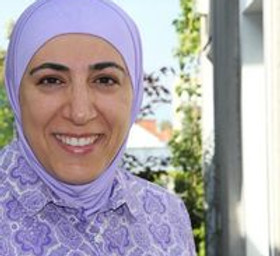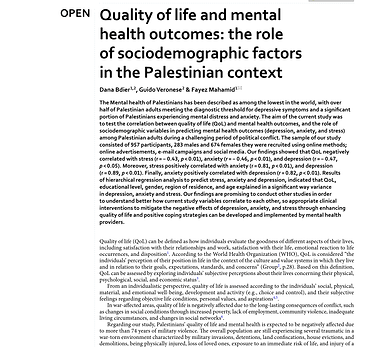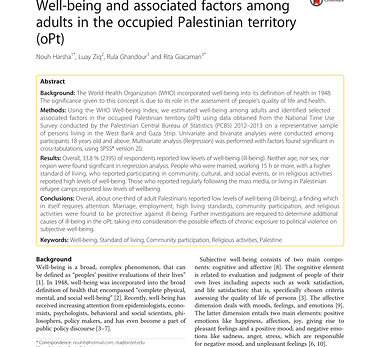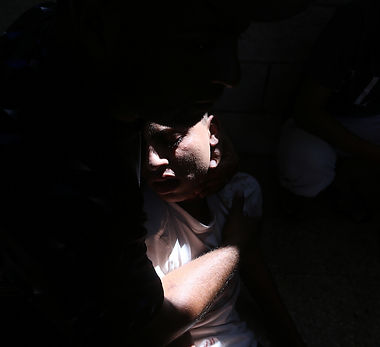

"Kaynak: flyers_for_falastin / Instagram"
Makale ve Kitaplar
E-Skop Filistin Özel Sayısı

İnsansız Topraklar – Kolonyalizmin Filistin İmgesi
Siyonish İsrail'in kuruluşu ve Siyonizmin bölgedeki etkileriyle ilgili farklı perspektiflerden ele alındığı metinler içermektedir.
Kitap

From the River to the Sea:Essays for a Free Palestine
Nehirden Denize, Gazze ve Batı Şeria'dan kişisel tanıklıkların yanı sıra, günümüze nasıl gelindiğini anlamamıza yardımcı olacak önemli tarihler ve analizleri toplu olarak sunan makaleler ve röportajlardan oluşmaktadır
Kitap

Towers of Ivory and Steel:How Israeli Universities Deny Palestinian Freedom
Bu kitabın gösterdiği gibi İsrail üniversiteleri, İsrail'in Filistinlilere yönelik baskı sisteminin temel direkleri olarak hizmet vermektedir. Akademik disiplinler, lisans programları, kampüs altyapısı ve araştırma laboratuvarlarının tümü İsrail işgaline ve apartheid'a hizmet ederken, üniversiteler Filistinlilerin eğitim haklarını ihlal ediyor, eleştirel bilimi ve öğrenci muhalefetini şiddetle bastırıyor. Bu kitap, İsrail akademisinin İsrail'in yerleşimci-sömürge projesinde süregelen ve aktif suç ortaklığını güçlü bir şekilde ortaya koyuyor.
Kitap

The Case for Sanctions Against Israel
Temmuz 2011'de İsrail devlete, şirketlere ve yerleşim yerlerine karşı boykot faaliyetlerine kamunun desteğini yasaklayan bir yasa çıkardı. Böylece Gazze'ye yönelik devam eden abluka ve yasadışı yerleşim yerlerinin genişlemesine bir de ifade özgürlüğüne yönelik baskıları da ekledi. Bununla birlikte, boykot, tecrit ve yaptırım kampanyası (BDS) İsrail ve Filistin'in yanı sıra Avrupa ve ABD'de de güçlenmeye devam ediyor. Bu önemli müdahale, Güney Afrika deneyimiyle ayrıntılı karşılaştırmalar da dahil olmak üzere hareketin tüm taraflarını ele almaktadır.
Kitap

The Case for Sanctions Against Israel
Yazar Lara Sheehi ve Stephen Sheehi tarafından kaleme alınmıştır. Bu kitap, Filistin'de yaşayan ve çalışan psikanalistlerin deneyimlerini ve psikanalizin işgal altındaki bir toplumda nasıl uygulandığını ele alır. Kitap, psikanalizin yalnızca bireysel bir tedavi yöntemi olmadığını, aynı zamanda toplumsal direnişin bir aracı olabileceğini tartışır. Psikanalistlerin, işgalin getirdiği zorluklarla nasıl başa çıktıklarını ve bu zorluklara karşı nasıl direndiklerini anlatır. Ayrıca, psikanalitik pratiğin, işgal altındaki insanların travma ve psikolojik sorunlarıyla başa çıkmalarına nasıl yardımcı olabileceğini de inceler.
Makale

Intent to Harm: Settler Colonial Outposts in Psychoanalysis
Yazarlar Lara Sheehi ve Stephen Sheehi tarafından kaleme alınmıştır. Bu makale, psikanalizin yerleşimci sömürgecilik bağlamında nasıl işlediğini ve yerleşimci sömürgeci yapılarının psikanalitik pratikler üzerindeki etkilerini inceler. Makale, özellikle İsrail-Filistin bağlamında, yerleşimci sömürgeciliğin psikanalitik pratikler üzerindeki etkilerini ve bu pratiklerin yerleşimci sömürgeci yapıları nasıl destekleyebileceğini veya bunlara karşı nasıl direnebileceğini tartışır. Yazarlar, psikanalitik teorilerin ve uygulamaların yerleşimci sömürgeci bağlamlarda nasıl manipüle edilebileceğini ve bu süreçte ortaya çıkan etik ve politik sorunları ele alırlar.
Makale

Burman, E. (2022). Psychoanalysis Under Occupation: Practicing Resistance in Palestine (Book review). Psychotherapy & Politics International, 20(1 & 2).
Eleştirel gelişim psikoloğu Erica Burman'ın Psychoanalysis Under Occupation kitabı gözden geçirmesi.
Makale

Atallah, D. G., & Awartani, H. (2024). Embodying Homeland: Palestinian Grief and the Perseverance of Beauty in a Time of Genocide. Journal of Palestine Studies, 53(1), 137-145.
"Awartani, a survivor of a near-fatal attack against his body and life, speaks with coauthor Atallah about these layers of loss, rage, and anguish built into the settler-colonial project and the power of revolutionary grief as liberatory praxis."
Makale

Atallah, D. G. (2023). Beyond Grief: Decolonial Love for Palestinian Life. Journal of Palestine Studies, 52(4), 70-75.
This essay is a Palestinian response to Judith Butler’s query about whether “we can mourn, without qualification, for the lives lost in Israel as well as those lost in Gaza,” published in the London Review of Books on October 13, 2023
Kitap

CURCUM’s Trees: A Decolonial Healing Guide for Palestinian Community Health Workers by Devin G. Atallah, Caesar Hakim, Hana R. Masud, Yousef al-Ajarma, Aya Darwish, Abeer Musleh, Rayyan Alfatafta, Nihaya Abu-Rayyan
The CURCUM كركم Collective is a Palestinian healing justice psychosocial practice and research group that we as DARA helped created and cultivate since August 2019. We are excited to share that we have created an indigenous Palestinian decolonial healing guide.
Yazı

The Baffler-Israel and Palestine in Contex
All articles, essays, and poems about Palestine are now available for free.
Makale

The Lancet-Series of five reports about health in the occupied Palestinian territory (oPt) (2009-2013)
In 2009, The Lancet published a Series of five reports about health in the occupied Palestinian territory (oPt), citing 568 references and involving 37 international researchers, of whom 19 were based in the oPt.
Makale

Jabr,S., Morse, M., El Sarraj,W., Awidi, B. (2013). Mental health in Palestine: Country Report. Arab Journal of Psychiatry, 24 (2), 174-178.
Mental health in Palestine and some recommendations.
Makale

Marie, M., Hannigan, B., & Jones, A. (2016). Mental health needs and services in the West Bank, Palestine. International journal of mental health systems, 10, 1-8.
This paper discusses the high levels of mental health need found amongst Palestinian people, and examines services, education and research in this area with particular attention paid to the West Bank.
Makale

Marie, M., SaadAdeen, S., & Battat, M. (2020). Anxiety disorders and PTSD in Palestine: a literature review. BMC psychiatry, 20, 1-18.
Results show that anxiety disorders and PTSD are one of the most common mental disorders in Palestine.The results indicate that a significant proportion of Palestinian experiencing serious issues that deal with several challenges, distinct barriers including; inconsistent availability of medications, absence of multidisciplinary teamwork, insufficient specialists, fragmented mental health system, and occupation. As primary prevention, the occupation has to have considered as the main source of anxiety and other mental health disorders in Palestine. Besides, there is a need to implement a mental health care system through multidisciplinary work and raising awareness regarding the prevalence of mental disorders.
Makale

Shukri, S., Holmes, D., Shukri, N., Shukri, H., & Saada, F. (2022). The silent epidemic; the toll of mental health in occupied Palestine. Palestinian Medical and Pharmaceutical Journal (Pal. Med. Pharm. J.), 8(1).
Palestinians are much more likely to suffer from PTSD and depression than the global average and their neighboring countries. The global prevalence of depression and PTSD are 5% and 3.6%, respectively. The prevalence of severe PTSD in children living in the Gaza Strip is 32.7%. Furthermore, depression in Palestine is among the highest rates in the world, affecting 40% of Palestinians.
Makale

Bdier, D., Veronese, G., & Mahamid, F. (2023). Quality of life and mental health outcomes: the role of
sociodemographic factors in the Palestinian context. Scientific Reports, 13(1), 16422.
The aim of the current study was to test the correlation between quality of life (QoL) and mental health outcomes, and the role of sociodemographic variables in predicting mental health outcomes (depression, anxiety, and stress) among Palestinian adults during a challenging period of political conflict.
Makale

Harsha, N., Ziq, L., Ghandour, R., & Giacaman, R. (2016). Well-being and associated factors among adults in the occupied Palestinian territory (oPt). Health and quality of life outcomes, 14, 1-7.
Harsha, N., Ziq, L., Ghandour, R., & Giacaman, R. (2016). Well-being and associated factors among adults in the occupied Palestinian territory (oPt). Health and quality of life outcomes, 14, 1-7.
Makale

Veronese, G., Pepe, A., Jaradah, A., Murannak, F., & Hamdouna, H. (2017). “We must cooperate with one another against the Enemy”: Agency and activism in school-aged children as protective factors against ongoing war trauma and political violence in the Gaza Strip. Child abuse & neglect, 70, 364-376.
This exploratory qualitative study investigated self-perceived risk and protection factors that may reinforce the ability of children living in refugee camps on the Gaza Strip to adjust to a traumatic and risky life context characterized by loss and dispossession.
Makale

Marshall, D. J. (2016). Existence as resistance: Children and politics of play in Palestine. Politics, citizenship and rights, 245-262.
Using the example of play, this chapter examines how Palestinian refugee children encounter and confront the Israeli occupation in everyday spaces of the camp. Through play, refugee children perform resistance to the circumstances of occupation and displacement and in so doing also challenge narrow representations of Palestinian children’s lives as characterized only by suffering and violence.
Makale

Marshall, D. J. (2016). ‘All the Beautiful Things': Trauma, Aesthetics and the Politics of Palestinian Childhood. In The Beginning of Politics (pp. 53-73). Routledge.
This paper examines the ways in which Palestinian children variously perform and transform the discourse of trauma and the aesthetic of suffering that have come to dominate representations of Palestinian childhood and the Palestinian struggle in general. I argue that everyday beauty in the lives of Palestinian refugee children, as found in mundane spaces and enacted through interpersonal relationships, constitutes an aesthetic disruption to the dominant representation of trauma as put forward by international humanitarian aid organizations and development agencies
Makale

Barber, B. K., Spellings, C., McNeely, C., Page, P. D., Giacaman, R., Arafat, C., ... & Mallouh, M. A. (2014). Politics drives human functioning, dignity, and quality of life. Social Science & Medicine, 122, 90-102.
Too little is known about human functioning amidst chronic adversity. We addressed that need by studying adult Palestinians in the occupied Palestinian territories (oPt). Fourteen group interviews were conducted in February, 2010 in Arabic by local fieldworkers with 68 participants representing the main stratifications of Palestinian society: gender, region, refugee status, and political affiliation. Thematic analyses highlighted the dominating role of the political domain of functioning (e.g., political structures, constraints, effects, identity, and activism). It also emphasized that values, such as justice, rights, dignity and self-determination, that underlie political structures and policies, are key elements of human functioning.
Makale

Marie, M., Shaabna, Z., & Saleh, M. (2020). Schizophrenia in the context of mental health services in Palestine: a literature review. International journal of mental health systems, 14, 1-10.
Results revealed the life of patients with schizophrenia in Palestine is complicated. Barriers as lacking awareness about mental illness, stigma, inconsistent availability of medications, absence of multidisciplinary teamwork, insufficient specialists, fragmented mental health system, occupation, and other obstacles stand in the face of improving the quality of life among these patients. Palestine is a state that is seeking independence with a scarcity of resources. It has been described as “uncharted territories’’ due to a lack of data, resources and records. As a result, there is insufficient data regarding schizophrenia in Palestine. Recommendations include ending the occupation as the leading cause of mental illness for Palestinians and implementing efficient and effective mental health nursing care through the multidisciplinary work and raising awareness regarding mental illness to fight the stigma.
Makale

Barber, B. K., McNeely, C. A., El Sarraj, E., Daher, M., Giacaman, R., Arafat, C., ... & Abu Mallouh, M. (2016). Mental suffering in protracted political conflict: Feeling broken or destroyed. PLoS One, 11(5), e0156216.
This mixed-methods exploratory study identified and then developed and validated a quantitative measure of a new construct of mental suffering in the occupied Palestinian territory: feeling broken or destroyed.
Makale

Mahamid, F. A. (2020). Collective trauma, quality of life and resilience in narratives of third generation Palestinian refugee children. Child Indicators Research, 13(6), 2181-2204.
Results demonstrated that children in today’s Palestinian camps suffer from collective trauma, they considered the 1948 Nakba as a ‘losing’ experience as it has affected all generations of Palestinian refugees. Results also showed that children in Palestinian camps suffer from poor quality of life; they live in very narrow homes and places, with lack of stadiums and recreational facilities. Participants of this research, however, appeared to demonstrate a high level of resiliency, positive self-efficacy, and responsibility to deal with difficult and stressful events; despite poor quality of life and collective traumatic experiences they have had.
Makale

Giacaman, R., Mataria, A., Nguyen-Gillham, V., Safieh, R. A., Stefanini, A., & Chatterji, S. (2007). Quality of life in the Palestinian context: An inquiry in war-like conditions. Health policy, 81(1), 68-84.
This study aims to elucidate the concept of quality of life (QOL) in a unique environment characterized by protracted and ongoing conflict. The study demonstrates that political freedom, self-determination, participation in democratic processes and feeling involved in political decision-making are considered important contributors to people's QOL.
Makale

Giacaman, R. (2023). The Limitations of Deinstitutionalization: The Case of the Israeli-Occupied Palestinian West Bank. Journal of Palestine Studies, 52(4), 76-86.
This essay examines the concept and limitations of deinstitutionalization as a principle and practice derived from Western paradigms, and how it has been problematically implemented in non-Western settings,
Makale

Marshall, D. J. (2016). ‘All the Beautiful Things': Trauma, Aesthetics and the Politics of Palestinian Childhood. In The Beginning of Politics (pp. 53-73). Routledge.
this paper asks how we might understand the present political moment through the lives of children, and how children play a role in building alternative political futures. Specifically, this paper seeks to understand how children both perform and transform the aesthetics of suffering as constructed through humanitarian aid and development discourse.
Makale

Thabet, A. A. M. (2019). Psychological well-being of Palestinian children and adolescents in Gaza Strip and West bank: Review paper. EC Psychology and Psychiatry, 8(3), 197-205.
post-traumatic stress reactions which was ranged in children from 10% to 71% while the rate of PTSD in West Bank ranged from 35% to 36%. Rate of anxiety was ranged from 28.5% to 33.9%, and depression ranged from 40% in children of Gaza and West Bank to 50.6%, general mental health of children rated by parents and teachers were 20.9% and 31.8% and up to 49.6% rated by parents. For adults, studies showed that PTSD ranged from 34% in university students to 65% among adults exposed to shelling
Makale

Smith, K. E. (2024). Avoiding an emotions-action gap? The EU and genocide designations. Journal of European Integration, 1-20.
Words matter, especially words with such a strong emotional resonance as genocide. The EU’s response to purported violations of the norm against genocide has been constrained by the emotional resonance of the word genocide. Eschewing the use of the term ‘genocide’ may ‘de-escalate’ a crisis, but it can also minimise or underestimate the violence, fail to show empathy with victims, and slow down or block action that could be taken to try to prevent genocide or other mass atrocities. This can impede the EU from effectively fulfilling its commitments to protect human rights, uphold international law and foster peace and security.
Blog Yazısı

Zbeidy, D. (2024, 25 January). When genocide is reduced to a war of emotions: Personal reflections on academic debates and the war in Palestine
Recently, universities and other institutions in the Netherlands have put a lot of focus on emotions of people in Europe when discussing the ongoing war on the Palestinians in Gaza. In this blog, Lecturer and Researcher Dina Zbeidy points out that while it is important to create space for emotions, this focus has the danger of shifting attention away from the actual atrocities happening on the ground, the topic these institutions should mainly talk about.
Kitap Koleksiyonu

DSP’s Palestine Resources: Books
Dutch Scholars for Palestine (DSP) is a network of academic and cultural workers committed to solidarity with the Palestinian struggle for liberation and self-determination. DSP has collected books to make an accessible list of resources on Palestine to understand the root causes of the situation in Palestine today. We put our recommendations in different categories for an easy overview.
Makale

Taha, A. M., Sabet, C., Nada, S. A., Abuzerr, S., & Nguyen, D. (2024). Addressing the mental health crisis among children in Gaza. The Lancet Psychiatry, 11(4), 249-250.
In Gaza, the prioritisation of more immediate crises—such as the acute shortage of lifesaving resources such as food, water, sanitation supplies, and electricity—intensifies the challenge of providing youth mental health interventions. For these reasons, addressing the Gazan youth mental health crisis requires ceasefire efforts that can promise residents basic physical safety.
Makale

Psikiyatrist Samah Jabr: “Filistin Meselesinde Çaresizliği Reddediyorum”
Psikiyatrist Samah Jabr, Filistin Sağlık Bakanlığında Ruh Sağlığı Hizmetleri Başkanı. Kudüs’te yaşayan ve Batı Şeria’daki Filistinliler için de ruh sağlığı hizmetlerini denetleyen Samah Jabr ile Filistinliler için direniş, travma ve Özgürleşme Psikolojisi hakkında konuştuk.
Makale

Politics drives human functioning, dignity, and quality of life
Too little is known about human functioning amidst chronic adversity. We addressed that need by studying adult Palestinians in the occupied Palestinian territories (oPt), a population that has experi- enced longstanding economic and political hardships. Fourteen group interviews were conducted in February, 2010 in Arabic by local fieldworkers with 68 participants representing the main stratifications of Palestinian society: gender, region, refugee status, and political affiliation. Interview tasks included each participant: describing someone doing well and not well, free listing domains of functioning, and prioritizing domains to the three most important.
Makale

“We must cooperate with one another against the Enemy”
Agency and activism in school-aged children as protective factors against ongoing war trauma and political violence in the Gaza Strip
Makale

Well-being and associated factors among adults in the occupied Palestinian territory
The World Health Organization (WHO) incorporated well-being into its definition of health in 1948. The significance given to this concept is due to its role in the assessment of people’s quality of life and health.
Makale

Nakba'yı Yaşamak The NewYork Kitap İncelemesi
Yakın tarihli iki anı, nesiller boyu süren Filistinli keder ve mücadelenin hikayesini anlatıyor.
Makale

Beni Görebiliyor musun? Lama Khouri'den Arap Göçmenlerin Kimlik ve Aidiyet Arayışları
Filistinli bir analist, bir göçmen olarak dokunaklı deneyimlerini ve bunların getirdiği kişisel ve profesyonel zorlukları paylaşıyor.
Makale

Gazze'nin Kırık Ninnisi: Soykırımın Çocuksuzluğu ve Annelik İmkansızlığı
Bu makale, Gazze'de devam eden soykırımın yıkıcı etkisini ve özellikle kadın ve çocukları hedef alan Filistin halkının sosyal ve ailevi yapılarını ortadan kaldırmak için kullanılan stratejileri açıklamaktadır. Bu tür sıkıntıların ortasında çocukları için normallik ve güvenlik görünümü sağlamakta zorlanan bu anneleri etkileyen zorlu koşullara ve karmaşık şiddet katmanlarına ışık tutuyor.
Makale

Çöküm ve Reddetme: Bir Filistinlinin Kayıp ve Kurtuluş Üzerine Düşüncesi
Winnicott'un "Çöküş Korkusu" ve "Gerçek ve Sahte Benlik Açısından Ego Bozulmaları" başlıklı bölümü (Winnicott, Citation1965, Citation1974), yaşadığım bir gerçeği sözlü olarak ifade ediyor. Winnicott'un "Kırılma Korkusu", bireylerin geçmişlerinde gerçekten meydana gelen ancak hiçbir zaman tam olarak işlenmeyen veya bilinçli olarak kabul edilmeyen psikolojik bir çöküşten korktukları ve devam eden sıkıntıya neden olan çözülmemiş travmayı bıraktığı fikrini araştırıyor. "Yanlış ve Gerçek Benlik Açısından Ego Bozulmaları" teorisinde, bireylerin çevresel arızalara uyum sağlamak ve genellikle gerçek "gerçek benliklerini" bastırmak pahasına dış beklentileri karşılamak için nasıl "sahte bir benlik" yarattıklarını açıklar. Bu, otantik ifadeyi engelleyen ve derin kimlik ve tatmin sorunlarına neden olan bir kopukluğa yol açar.
Makale

Felaketi Görmek ve Görmemek: Parçalanma üzerine notlar: Gazze'deki felaketi görmemizi ve anlamamızı engelleyen nedir? Ve neden sessizlik var?
1936'da Aldous Huxley, "Gazze'de Gözsüz" başlıklı altıncı romanını yayınladı. Bir günlük aracılığıyla, I. Dünya Savaşı sırasında hayal kırıklığıyla işaretlenen parçalanmış gerçekliği anlamlandırmaya çalışan bir anlatıda genç İngiliz Basil Seal'i takip ediyoruz. Gazze, kitapta devam eden felaketi görmenin imkansızlığının bir sembolü olarak ortaya çıkıyor. Başlık, kitabı açan ve John Milton'un Samson'un trajik kaderini hatırlatan "Samson Agonistes" (1671) dramasına atıfta bulunan ifadeden ödünç alınmış gibi görünüyor: "Gazze'de değirmende kölelerle gözsüz." İncil'den bir figür olan Samson, gözlerini çıkarıp onu Gazze'ye gönderen Filistliler tarafından esir alındı ve burada hapishanenin değirmen taşını çevirmeye mahkum edildi. Huxley yine peygamber miydi?
Kitap / Dergiler

7 Ekim'den Bu Yana Bir Yıl
İsrail'deki 7 Ekim saldırılarından bir yıl sonra, İsrail'in savaşının sonu ufukta yok. Bu haftaki okuma listesi, geçen yılki haberlerimizden, İsrail-Filistin çatışmasının daha geniş bağlamından ve adil bir barışın nasıl görüneceğinden seçimleri derliyor.






